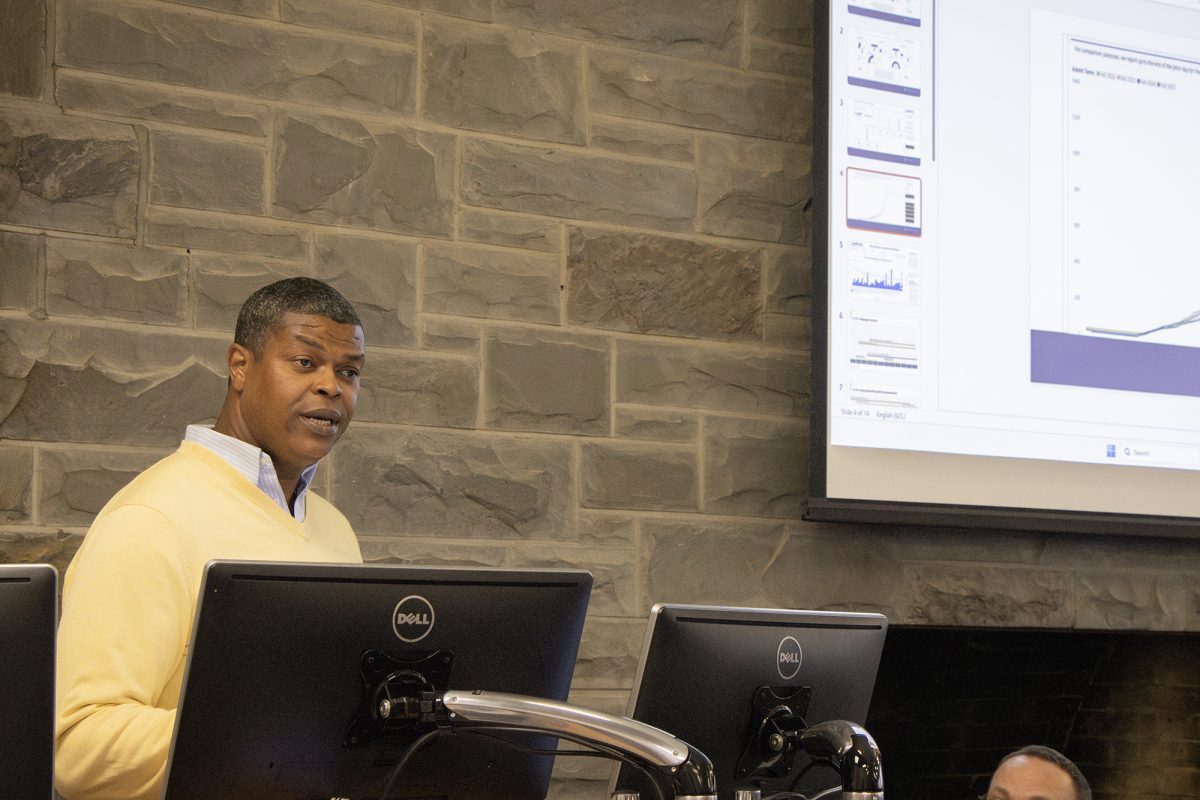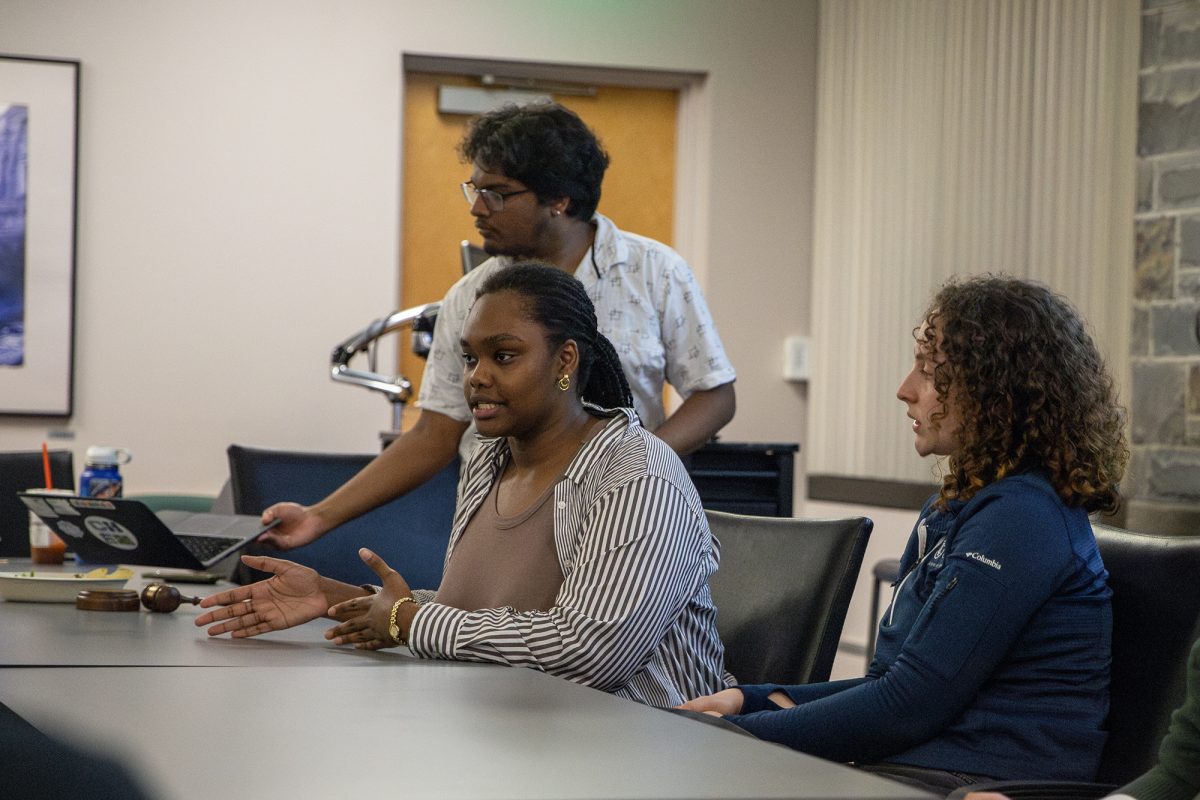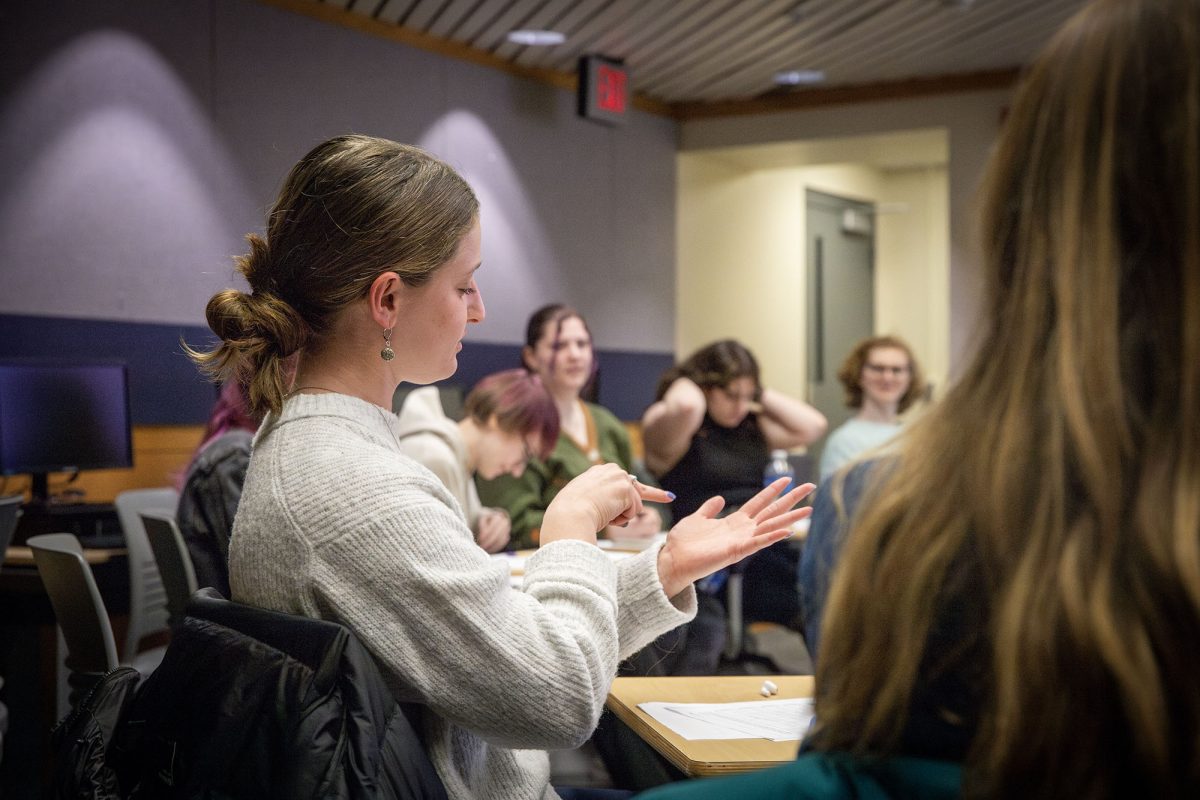On April 16, Campus Climate Committee co-chairs released a Key Findings report summarizing some important details from the results of the survey that was completed in Fall 2023.
The college worked with Rankin Climate, a company that assesses institutional climate and specifically works with the college’s working committee, to compile the results of the survey. The survey was made up of 117 questions, 16 of which were open-ended. Questions from the 2016 Campus Climate Survey were used as a basis and reviewed again by the college.
Demographic breakdown of respondents
The last Campus Climate Survey was conducted in 2016 and had a response rate of 46%. In 2024, the response rate fell by 14%, meaning 32% of the campus population — 1,987 out of over 6,000 — individuals from the campus community completed the survey.
57% of respondents — students, faculty and staff — identified as women, 35% of respondents identified as men and 9% identified as gender–fluid, genderqueer, non-binary, transgender and other gender identities they might have specified in their response.
62% of the respondents identified as White, 8% as multiracial, 8% as Asian, 4% as Latine and 4% as Black.
Respondents on the trans-spectrum, women, respondents of color, respondents with multiple disabilities and first-generation respondents reported feeling less comfortable than their counterparts.
Unwanted sexual experiences
10% of all respondents reported that they had encountered some type of unwanted sexual experience at the college, a 5% decline from 2016.
Specifically, 6% experienced unwanted sexual interactions, 3% experienced unwanted sexual contact, 3% experienced stalking and 1% experienced relationship violence.
Decreases and disparities in comfort levels
Results show that overall, there has been a slight decrease in comfort levels among students, faculty and staff. 69% of respondents said they were either “comfortable” or “very comfortable” with the campus climate, one percent less than comfort levels in 2016.
Within specific academic departments, 71% of faculty and staff respondents were either “comfortable” or “very comfortable,” 3% more than from 2016. In classes, 79% of students and faculty were either “comfortable” or “very comfortable,” 5% less than in 2016.
Consistent with 2016 findings, undergraduate and graduate students reported a higher level of comfort than faculty and staff. 75% of undergraduate and graduate students reported feeling “very comfortable” or “comfortable,” while 65% of faculty and 67% of staff reported feeling the same.
Tenured or tenure-eligible faculty reported having lower levels of comfort than non-tenure track (NTEN) and temporary faculty — a difference that did not exist in 2016. 39% of tenure and tenure-eligible faculty reported feeling “comfortable” or “very comfortable” while 64% of NTEN and temporary faculty reported feeling the same.
Black and Latino students reported lower levels of confidence than White students, a difference that was not observed in 2016. 50% of Black students and 65% of Latino students reported feeling “comfortable.” 83% of white respondents reported feeling either “comfortable” or “very comfortable. None of the Black respondents reported feeling “very comfortable” and 20% of Latino students reported feeling “very comfortable.”
Students’ sense of belonging aligned with the data. Students on the trans spectrum, multiracial students, students with disabilities and first-gen students reported having a lower sense of belonging than their peers.

Areas of strength and improvement
The college’s workplace climate and student academic experience are its strongest suits, according to the report.
80% of faculty respondents reported feeling valued by their academic department or program, a 2% increase from 2016. 86% of them felt students valued their teaching, a 4% decline from 2016.
79% of students felt valued by faculty — a 2% decline from 2016 — but 86% of students felt valued by faculty in a classroom setting, a 2% increase.
Faculty challenges
Only 11% of faculty respondents indicated that salaries for tenured and tenure-eligible faculty were competitive. Melanie Stein, provost and senior vice president for academic affairs, said in the March 5 Faculty Council meeting that salaries have been low for all faculty members across the college.
More faculty respondents, 28% specifically, felt that salaries for tenured and tenure-eligible faculty were competitive in 2016.
Similarly, only 12% of faculty said they felt that salaries for NTEN and continuing faculty were competitive, a 12% decline from 2016.

Reasons for leaving
About half of the undergraduate respondents, 51%, indicated that they seriously considered leaving the college because of a lack of sense of belonging, while 62% of graduate students said they considered leaving because of feeling homesick.
70% of faculty respondents said they seriously considered leaving because of increased workload, and 65% of staff reported considering leaving because of low salaries or pay rates.
Next steps
The college will now work with Rankin on recommendations and collection of feedback from the campus community. Through April, the Campus Climate Survey committee will release data visuals summarizing findings and in May action forums will follow.
“Rankin Climate will continue to work with Ithaca College to review the results from this assessment and offer strategic offer recommendations followed by action forums for the community to offer input and feedback,” the report said. “The action forums will add to the campus climate narrative and inform Ithaca College’s continued commitment to fostering a thriving campus community.”















